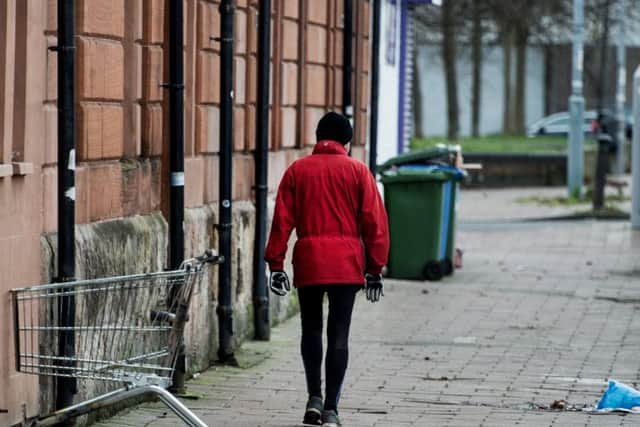Death rate for strokes more than 50% higher in Scotland's poorest communities
The mortality rate from cerebrovascular disease (CVD) in the most deprived communities was 92.3 per 100,000 people in 2018 - compared to just 60.6 per 100,000 in the least deprived areas.
The figures, published by the statistical division of the NHS in Scotland, showed the gap was widening.


Advertisement
Hide AdAdvertisement
Hide AdAn NHS report revealed: "The death rate for cerebrovascular disease in the most deprived areas was 52% higher than in the least deprived areas in 2018."
There were a total of 3,835 deaths in Scotland in 2018 when CVD was the underlying cause, with the mortality rate down over the last decade by 12%.
"Scotland has a high prevalence of the risk factors associated with CVD such as smoking, high blood pressure, poor diet, lack of exercise and alcohol consumption above recommended limits," the NHS report said.
"Treating and preventing stroke continues to be a national clinical priority for Scotland."
Scottish Greens co-leader Alison Johnstone highlighted the gap in mortality rates between rich and poor.
She said: "It is simply unacceptable that we are failing the most vulnerable people in our society by allowing them to die from a treatable illness. These figures must serve as a wake-up call.
"We need to make sure that people across Scotland, particularly those at risk from stroke, are aware of the symptoms so they know when to seek medical help.
"The Scottish Government must also take radical action to tackle at source the inequalities that continue to blight Scotland.
Advertisement
Hide AdAdvertisement
Hide Ad"Otherwise those who live in the poorest areas will continue to suffer worse health and die sooner than those who live in the wealthiest."
Meanwhile, the Royal College of Physicians of Edinburgh (RCPE) said a national thrombectomy service could help to reduce the number of stroke deaths.
It urged ministers to push ahead with plans to introduce a thrombectomy service for Scotland, allowing more patients to benefit from the specialist procedure.
Only 13 patients in Scotland underwent a thrombectomy - a procedure which involves removing blood clots from the brain - in 2017, according to Chest Heart and Stroke Scotland.
A spokesman for the RCPE said: "This college has been active in its support for comprehensive stroke services, including thrombectomy, in Scotland.
"We have welcomed plans to create a new Scottish thrombectomy service and would urge that resources are made available to ensure there are no avoidable delays in its implementation."
He added: "It's vital that patients who have suffered a stroke or brain haemorrhage are given access to a full complement of services."
